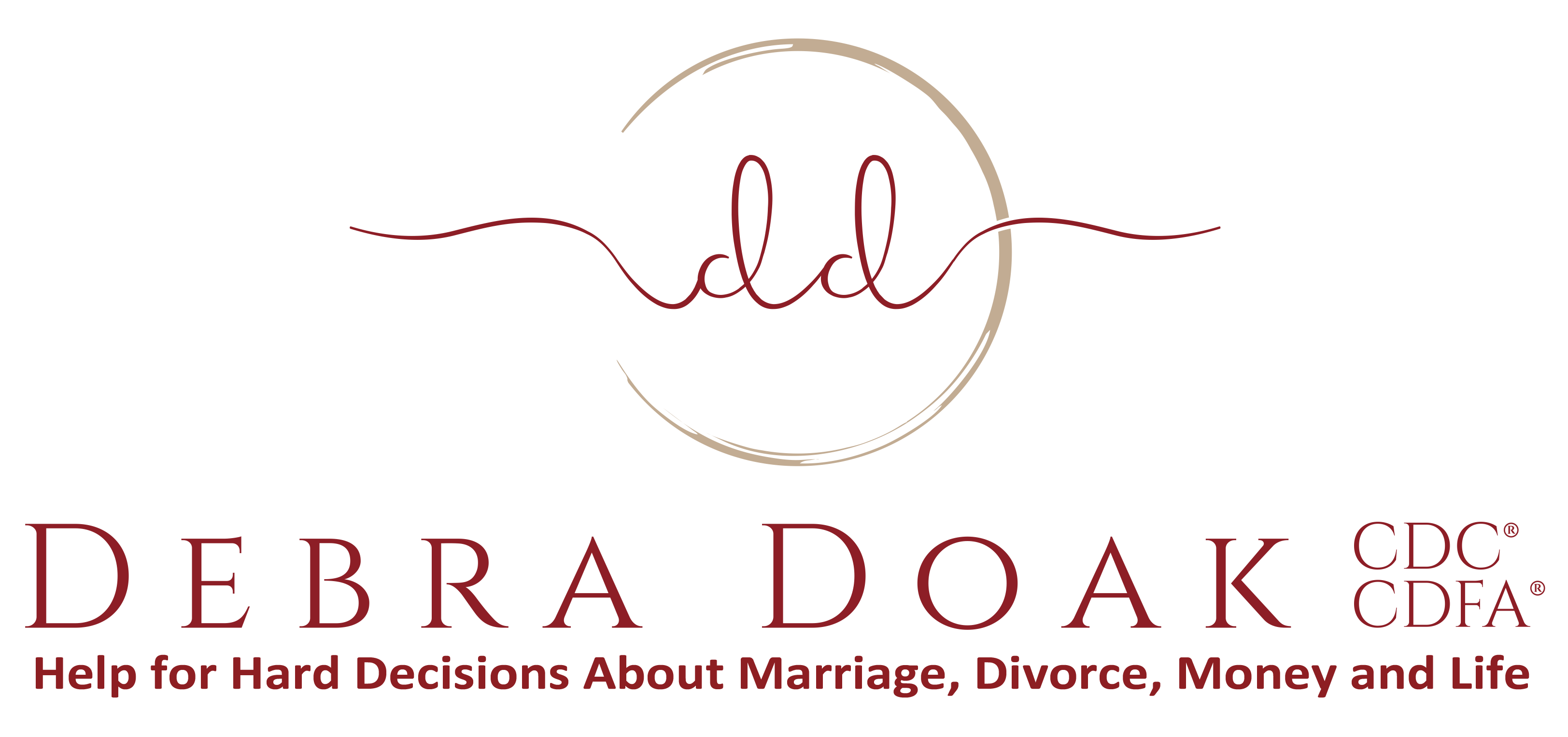
Watch Out for These 8 Common Divorce Settlement Mistakes
You think you’ve almost got everything settled. You feel like it’s equitable (enough) and you’re about to sign your final agreement. You only have one chance to get this right and ensure you aren’t making some common divorce settlement mistakes. So, even if you’ve had an attorney, it doesn’t hurt to check through your agreement one final time with a trusted advisor who hasn’t been so close to your process.
Many of the decisions in divorce are final, so there’s no going back once you file the paperwork unless there’s been a grave error. You are responsible to know your rights and understand every word of what you’re signing. But wait…isn’t that what my attorney is for? Well yes. And no.
You attorney will help you understand your rights, navigate the court system, and file the right paperwork at the right time. They may help you negotiate in mediation or with opposing counsel. They don’t, however, know your life, understand your priorities, or know your spouse like you do. They’re helping you get an agreement – you need to be thinking about your future.
#1 Legalese
Is the agreement written in language you understand or is it full of stuff that sounds like you’d need a law degree to decipher it? If it’s not clear to you, chances are it’s not clear to your spouse and there’s room for future disagreements over interpretation. Ask your attorney to clarify anything you don’t understand and request that they simplify the language so mere mortals can read it and comprehend it. You should be able to explain everything in your agreement to a friend and answer their questions. If you can’t, then the language is too “legal-y”.
#2 Loose Language
I’ve written a previous post on the perils of having vague language in a parenting plan. Without specific details of who will do what by when and how they will do it, we run the risk of leaving loopholes wide open. This is one of the most common divorce settlement mistakes I see. And it can result in future frustrations and conflict. The point of getting an agreement in writing is to settle things once and for all. Not to leave a bunch of stuff open ended for you to have to negotiate later. When will spousal support be paid? How will it be paid? What is the penalty if it is late? When will the house be listed for sale? With whom? How will price reductions be handled? What offers will we accept? How will you resolve future disputes on parenting issues?
#3 Skimping on Discovery
Every state requires some type of formal financial disclosure where both you and your spouse declare your income, expenses, assets and debts and share that information with each other. But you’re allowed to ask a lot more questions if you need clarification or transparency to feel fully informed. You can request statements, check copies, employment contracts, partnership agreements, and so on. If you thought your 401(k) had $400k, but your spouse reports $300k, ask for a few years of statements to confirm for yourself that it’s just a decrease in market value like your spouse says and there weren’t withdrawals you’re not aware of.
#4 Trading Taxable for Pre-Tax Assets
A dollar isn’t always equal to a dollar. If he is keeping the Roth IRA and you’re keeping the traditional 401(k), then you’re not exchanging apples for apples. Money in the Roth IRA has already been taxed so each dollar is worth $1. The traditional 401(k) however, is pre-tax money meaning you haven’t paid tax on it yet. You will pay tax when you withdraw it, so a dollar in that account is worth approximately $.80. Same goes for the house. If you are keeping the house, but will have to pay capital gains when you sell it, then it’s not worth the full appraised value when it comes to property distribution. If you want to avoid these common divorce settlement mistakes, you may want to have a divorce financial professional (CDFA) assist you.
#5 Not Insuring Support Payments
You’ve agreed on child support and/or spousal support (alimony), but where would you be if something happened to your ex? If you’re planning on those payments to cover your monthly bills, well, we have a problem. I know it seems morbid to talk about your ex getting hurt or dying, but consider the implications for your future and your children’s future. Made certain there is some provision such as disability insurance, life insurance or the ability to make a claim on their estate to cover those remaining support obligations. Read more here about insuring support payments.
#5 Accepting Employee Contributions
If your spouse has a pension plan through their employer (or previous employer), they may claim that the value of that pension only consists of the amount they’ve paid in (their payroll contributions) since it isn’t in pay status yet (they haven’t retired). You could be leaving a lot of money on the table if you don’t have a financial professional value the marital portion of that pension account. Even if they aren’t retired, that pension may have already accrued a benefit that will be paid at a point in the future and that is a marital asset.
#7 Forgetting Whole Life Insurance
If your spouse maintains term life insurance, then no worries, there’s nothing there to divide. But if they have a whole life policy, then it may have some cash value accumulated that should be considered as an asset. If you paid the insurance premiums with marital funds, then the cash sitting in that policy may be on the table to be divided. Simply asking to see some policy statements may provide important information.
#8 Ignoring Additional Income Sources
When determining income available for support, it’s in your best interest to be sure that every dollar is included in your spouse’s income. This divorce settlement mistake can really cost you. Don’t forget about any additional income they may receive from separate property (inheritance, pre-marital or gift)) assets like stocks, brokerage accounts, rentals, trusts, etc… If they receive a base housing allowance , disability or retirement from the military, that should be included. Things like 401(k) contributions, donations, savings, stock purchases, etc… that they have voluntarily deducted from their paycheck should also be added back in. If they operate a business and the income seems low, review the tax return schedules for unusual write-offs.
How You Can Avoid Common Divorce Settlement Mistakes
Ask, ask and ask again. This is no time to be shy or let anyone rush you. It’s too important and the consequences too long lasting. If your spouse is pressuring you to hurry up and agree, that may be a red flag for you to pause and consider asking more questions.
None of the suggestions here are to be taken as legal advice and this list is not all inclusive. Always consult with your attorney and if you have financial concerns, consider consulting with a a divorce financial professional (CDFA). Remember, you’re your own best advocate in divorce.
Wishing you strength and wisdom,




